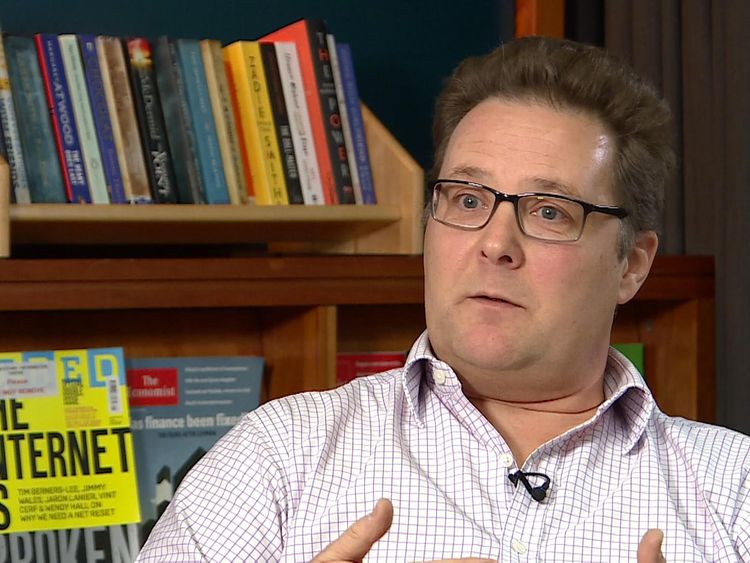The world's biggest food and drink manufacturer has told Sky News it would welcome stronger regulation on high sugar food to tackle the country's obesity crisis.
Nestle, which produces brands such as Cheerios, Kit Kat and Aero, said it wants to be able to compete fairly with other manufacturers.
Head of nutrition at Nestle UK, Kate Power, said: "We would like the government to create a level playing field, the voluntary approach has its benefits and worked to a certain extent, but we might also need to look at voluntary and more regulation."
The government's current obesity strategy, Childhood Obesity: A Plan for Action, part 2, is heavily reliant on voluntary action and focuses on children rather than adults.
The so-called sugar tax, which was introduced in April 2018, has shown that snack food manufacturers are willing to adapt and many companies voluntarily reformulated their recipes before the levy came in.
Nestle says it has restructured how it uses sugar in its confectionery and recently launched a new version of its Milky Bar containing 30% less sugar.
The government has set the target of reducing sugar in certain snack foods by 20% by 2020, but the success of initiatives to tackle obesity has been limited.
Eustace De Sousa, the national lead for children at Public Health England, admitted there is still a long way to go.
He said: "We have seen some very significant improvements in reductions in sugar, for example in cereals for children and some yoghurts, but as a whole we haven't achieved the target of 5% that the government had set for the sugar levy.
"Government have been very clear this year that if they fail to see continued progress and increased progress in respect of that sugar reduction that they will take further action and we really welcome that. "
It is unclear what that further action could be, but taxation, subsidies and regulation are all measures that have been put forward by experts in the industry.
Professor of health psychology at University College London, Robert West, believes the government could learn lessons from the anti-tobacco strategy in order to get to grips with obesity.
The number of people smoking in the UK has fallen from 27% to 17% over the last 20 years thanks to tough government policy, taxation and health campaigns.
Professor West said: "I think what has to happen, much like with the tobacco industry at the very beginning, is you have to have a change within the commercial environment in which companies are incentivised to help the problem rather than to be a problem.
"To the extent we can incentivise companies that are producing highly calorie dense foods to produce healthier foods and also market foods in a way which is more conclusive to a healthy diet, then you can start to tackle the problem.

"Without that it's always going to be an uphill struggle."
He added: "I think the trick is to start the thing off with a bang and get quick wins so that if we can see obesity rates going down, which we saw with the tobacco strategy, then that motivates government to think 'well actually, we are making a difference, things are moving in the right direction' and the population can see that as well."
But getting tough with the snack food manufacturers is not as easy as with tobacco.
Senior fellow in public health at The Kings' Fund, David Buck, said the situation is complex.
"Tobacco is a much simpler substance, we can all survive without tobacco but not without food, it sounds obvious, but we all need food to survive," said Mr Buck.
"So who we actually regulate and what we do around that and lessons we take are obviously quite complex.
"There's so many different products so it's a much bigger challenge. Yes, the government can go further, but it needs to work with the food and drink industry and not make it a pariah."
More from UK
Illnesses brought on by the use of tobacco are still the UK's biggest killer but obesity could in future overtake it as the leading cause of preventable early death.
A spokesperson for the Department of Health and Social Care said: "We are committed to reducing obesity and the harm that it causes. As part of our obesity plan we've encouraged manufacturers to cut sugar from half the drinks available in shops and are consulting on plans to introduce calorie labels in restaurants."
[contf]
[contfnew]

Sky News
[contfnewc]
[contfnewc]







